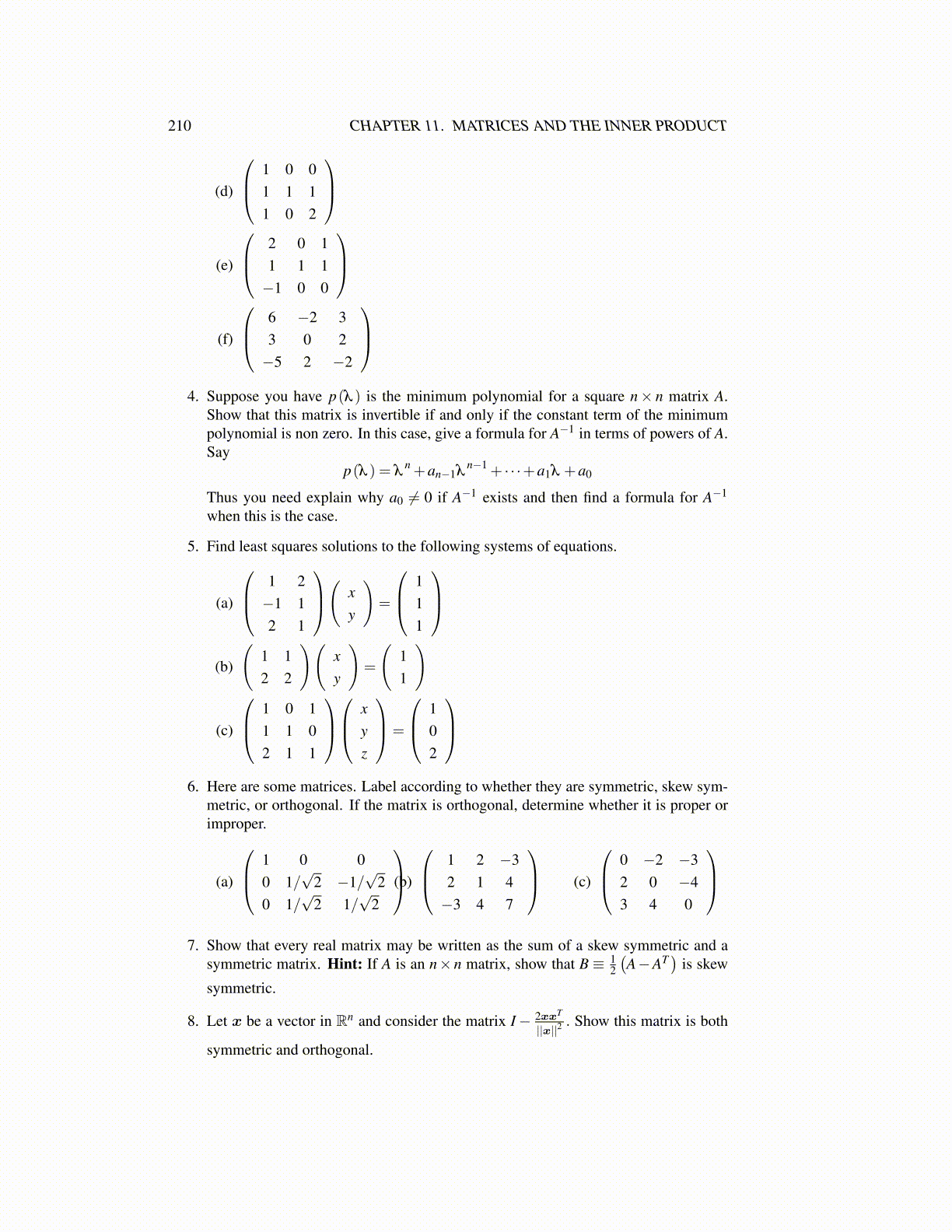
210 CHAPTER 11. MATRICES AND THE INNER PRODUCT
(d)
1 0 01 1 11 0 2
(e)
2 0 11 1 1−1 0 0
(f)
6 −2 33 0 2−5 2 −2
4. Suppose you have p(λ ) is the minimum polynomial for a square n× n matrix A.
Show that this matrix is invertible if and only if the constant term of the minimumpolynomial is non zero. In this case, give a formula for A−1 in terms of powers of A.Say
p(λ ) = λn +an−1λ
n−1 + · · ·+a1λ +a0
Thus you need explain why a0 ̸= 0 if A−1 exists and then find a formula for A−1
when this is the case.
5. Find least squares solutions to the following systems of equations.
(a)
1 2−1 12 1
( xy
)=
111
(b)
(1 12 2
)(xy
)=
(11
)
(c)
1 0 11 1 02 1 1
x
yz
=
102
6. Here are some matrices. Label according to whether they are symmetric, skew sym-
metric, or orthogonal. If the matrix is orthogonal, determine whether it is proper orimproper.
(a)
1 0 00 1/
√2 −1/
√2
0 1/√
2 1/√
2
(b)
1 2 −32 1 4−3 4 7
(c)
0 −2 −32 0 −43 4 0
7. Show that every real matrix may be written as the sum of a skew symmetric and a
symmetric matrix. Hint: If A is an n× n matrix, show that B ≡ 12
(A−AT
)is skew
symmetric.
8. Let x be a vector in Rn and consider the matrix I− 2xxT
||x||2. Show this matrix is both
symmetric and orthogonal.